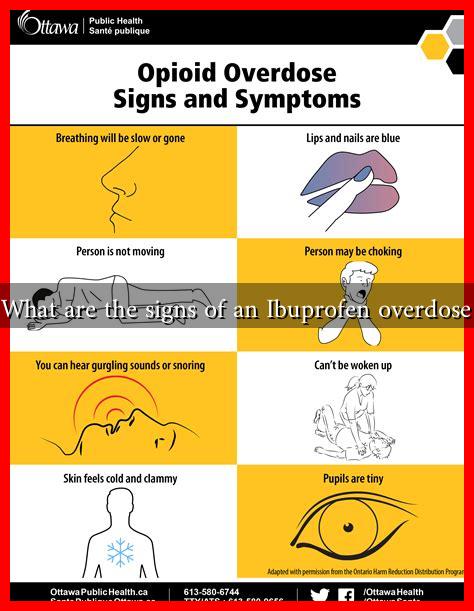-
Table of Contents
What are the Signs of an Ibuprofen Overdose?
Ibuprofen is a widely used nonsteroidal anti-inflammatory drug (NSAID) that helps alleviate pain, reduce inflammation, and lower fever. While it is generally safe when taken as directed, an overdose can lead to serious health complications. Understanding the signs of an ibuprofen overdose is crucial for timely intervention and treatment. This article explores the symptoms, causes, and preventive measures associated with ibuprofen overdose.
Understanding Ibuprofen and Its Uses
Ibuprofen is commonly used to treat various conditions, including:
- Headaches
- Muscle aches
- Arthritis
- Menstrual cramps
- Dental pain
Available over-the-counter, ibuprofen is often considered a go-to medication for pain relief. However, it is essential to adhere to the recommended dosage to avoid adverse effects.
What Constitutes an Overdose?
An ibuprofen overdose occurs when an individual consumes more than the recommended dose, which is typically 400 mg per dose for adults and 10 mg/kg for children. The maximum daily limit for adults is generally 1200 mg without a prescription. Exceeding these limits can lead to toxicity.
Signs and Symptoms of Ibuprofen Overdose
Recognizing the signs of an ibuprofen overdose is vital for prompt medical attention. Symptoms can vary based on the amount ingested and the individual’s health condition. Common signs include:
- Nausea and Vomiting: One of the first signs, often accompanied by a feeling of unease.
- Stomach Pain: Abdominal discomfort or pain may occur.
- Dizziness or Drowsiness: Overdose can affect the central nervous system, leading to fatigue.
- Headaches: Paradoxically, headaches can worsen with overdose.
- Ringing in the Ears (Tinnitus): A common auditory symptom associated with high doses.
- Shortness of Breath: Difficulty breathing may arise in severe cases.
- Confusion or Disorientation: Cognitive impairment can occur, especially in older adults.
- Severe Allergic Reactions: In rare cases, an overdose can trigger anaphylaxis, leading to swelling and difficulty breathing.
Case Studies and Statistics
According to the American Association of Poison Control Centers, ibuprofen is one of the most commonly reported medications in cases of overdose. In 2020, there were over 20,000 reported cases of ibuprofen exposure, with a significant number resulting in serious health complications. A study published in the Journal of Medical Toxicology highlighted that while most ibuprofen overdoses are non-fatal, they can lead to acute kidney injury and gastrointestinal bleeding in severe cases.
What to Do in Case of an Overdose
If you suspect an ibuprofen overdose, it is crucial to seek medical help immediately. Here are steps to take:
- Call emergency services or poison control.
- Do not induce vomiting unless instructed by a medical professional.
- Provide information about the amount ingested and the time of ingestion.
Preventive Measures
To avoid ibuprofen overdose, consider the following preventive measures:
- Always follow the dosage instructions on the label or as prescribed by a healthcare provider.
- Avoid combining ibuprofen with other medications that contain NSAIDs.
- Keep medications out of reach of children.
- Consult a healthcare professional if you have pre-existing conditions, such as kidney disease or gastrointestinal issues.
Conclusion
Ibuprofen is a valuable medication for pain relief and inflammation, but it is essential to use it responsibly. Recognizing the signs of an ibuprofen overdose can save lives and prevent serious health complications. If you or someone you know exhibits symptoms of an overdose, seek medical attention immediately. By adhering to recommended dosages and taking preventive measures, you can safely enjoy the benefits of ibuprofen while minimizing the risks associated with its misuse.

